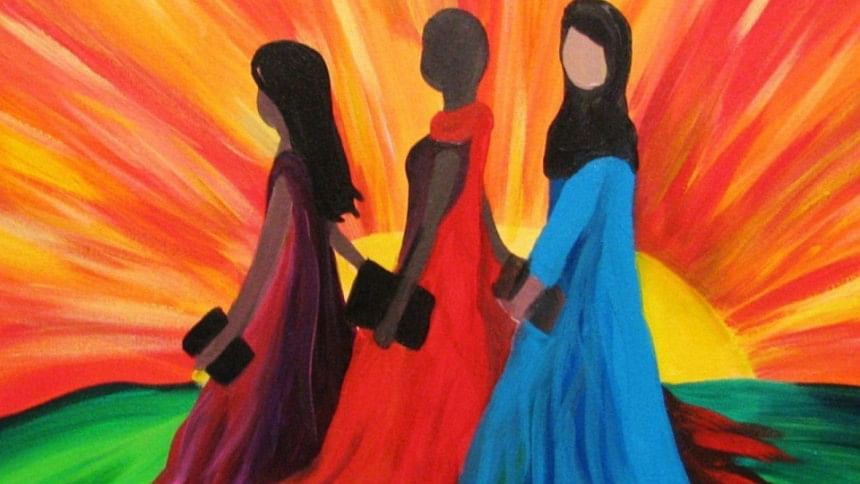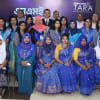Putting women and girls at the heart of our work

As we reflect on International Women's Day and on the extraordinary and empowered women in our lives—leaders in politics, business, education, civil society, in entertainment and in our homes—we must also address the barriers other women face across the world.
Globally, one in three women will experience violence in their lifetime. Violence against women and girls remains one of the most widespread human rights violations. Violence and threats of violence appear in many forms—domestic violence, sexual violence, sexual harassment, female genital mutilation, and child, early and forced marriage.
The consequences for girls and women who experience violence are huge. Survivors suffer life-long physical and mental health problems. Violence against women and girls also has a serious economic impact.
There has been significant progress in getting as many girls as boys enrolled in primary school and reducing maternal and infant mortality in Bangladesh, and women have more opportunities for formal employment. But women and girls continue to be disempowered and experience high levels of violence. Over 80 percent of married Bangladeshi women are abused at least once during their marriage, be it physical, sexual, emotional or financial abuse and most often from someone they know and should be able to trust.
And the marriage of young girls remains a problem. Although the proportion of girls marrying in their teens has been declining for 10 years or so, Bangladesh still has one of the highest rates of child marriage in the world with over half of women currently between the age of 20–24 having married before their 18th birthday, and almost one in five having married before their 15th birthday.
Tackling violence against women and girls is a top priority for UK aid in Bangladesh. Our focus is on stopping violence before it starts. We do this by supporting women's and girls' education, health and economic empowerment, so that girls and women can achieve their full potential. We also support the victims of violence by ensuring they can access security, justice and health services. Our programmes create job opportunities for survivors, helping them to be reintroduced to society. We also work with men and boys to help tackle the social and cultural attitudes and norms that do not condemn all gender-based violence and early marriage.
Since 2015, UK aid has ensured access to security and justice services for more than six million women and girls in Bangladesh. Our support has also ensured 26,000 women victims of violence to receive compensation, resolution or legal services, and 8,000 early marriages have been stopped. We have also required that all UK-funded humanitarian programmes rightly consider sexual and reproductive health rights and the risks of violence against women and girls. Most recently, we have allocated an additional one million pounds to UNFPA in Bangladesh to ensure that protection is incorporated into the UN response to help address shockingly high levels of sexual and gender-based violence experienced by Rohingya women and girls who have taken shelter in Bangladesh.
Gender parity won't happen overnight. But across the world women are making positive gains day by day. Plus, there's indeed a very strong and growing global movement of advocacy, activism and support. The campaign has dominated conversations at the Golden Globes, Baftas and Oscars award ceremonies demonstrating the prevalence of violence against women and girls. The #MeToo campaign has helped give many women a voice who had not felt empowered or safe enough to speak out before. Now, more than ever, there's a strong call-to-action to promote gender parity, to motivate friends, colleagues and whole communities to think, act and challenge ourselves to be gender inclusive.
We all—men and women, boys and girls—need to #PressforProgress. To do something for the one in three women and girls around the world who experience violence in their lifetime. By working together to tackle the root causes and by putting women and girls at the heart of our work, by empowering them in the home, in schools, in the workplace and in the public spaces, we can change the world.
Alison Blake is British High Commissioner to Bangladesh and Jim McAlpine is Acting Head of DFID Bangladesh.










Comments